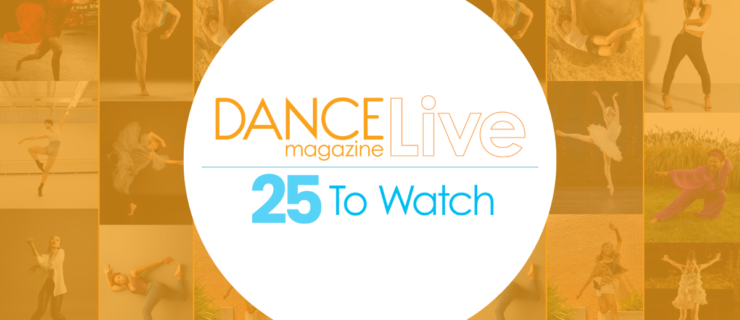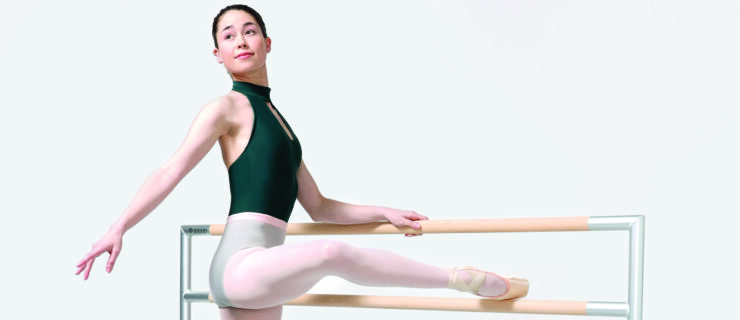Pick Your Perfect Program
When I was 22, I attended Bates Dance Festival in Lewiston, ME. I rationalized that spending three weeks with truly amazing modern choreographers in a non-competitive environment (Bates doesn’t hold auditions) would be the perfect way to transition from college to the real world.

I signed up for Lisa Race’s technique class and David Dorfman’s repertory class and was psyched. But once classes began, I realized I was spending most of my day doing exactly the same thing. My friends, on the other hand, were taking composition, ballet, yoga and Afro-Caribbean dance. I was jealous. I’d come to a place with a smorgasbord of dance available, and had narrowed my focus too much.
When I returned to Bates the next year, I put more thought into my schedule and had a fantastic, eclectic experience.
Knowing what you want to get out of a summer study program is key to it being a success. DS spoke with directors from diverse programs to get the scoop on the top 10 things to consider when choosing a program that’s right for you.
1. Location, location, location
Where do you want to go? If this is your first time away from home, you might want to stay closer to Mom and Dad, but if you’re an old hat at this, it could be time to venture across the country. But remember, it’s not just distance that you want to consider. Do you want to be in a city, on a college campus or in the country? You may be thrilled to work with Francesca Corkle at Joffrey Ballet School’s Summer Intensive, but the hustle and bustle of NYC might turn you off. Or, you might live in a big city and find that dancing in the woods at Jacob’s Pillow in Becket, MA, is just the breath of fresh air you need.
2. Time commitment
Is the summer your chance to cram in all the classes you can’t squeeze in while balancing school, friends and activities? Or is it the time to rest your body? (There’s nothing wrong with that!) Summer intensives run anywhere from a weekend to six weeks. Picking a program that will challenge and inspire you—without causing you to burn out or interfering with your family reunion in the Poconos—depends on what your commitments look like for the rest of the year. Maybe a weeklong workshop, like the Los Angeles Hip Hop Dance Intensive held at the Debbie Allen Dance Academy, would be the right compromise for your schedule.
3. Money, money, money
Cost is a vital issue to discuss with your parents. How much can they afford? Are you willing to chip in? Can you apply for a scholarship? Does the program have a work/study program? (Many do.) Sit down with your parents and chat about your budget before getting your heart set on a program.
4. Performing and watching opportunities…
Most programs have a final showcase, but the emphasis on the performance varies. “At Bates, the final showing is snippets from class,” director Laura Faure explains. “But we’re process-oriented. We don’t want the students to focus on product.” At Jacob’s Pillow, the Jazz/Musical Theater Program dancers perform with Broadway stars at the end of the session. At the Kirov Academy of Ballet in Washington, DC, dancers are coached by ballet masters, which can enhance their careers. “Having had character training from the Kirov Academy can help a dancer get a job down the road,” says Marat Daukayev, the Kirov Academy of Ballet’s artistic director.
“Watching performances is as important as anything else you’re doing,” says Chet Walker, director of the Jazz/Musical Theatre Program at Jacob’s Pillow. “We have discussions about what students saw the night before. We teach them how to look at work; art is about conversation.”
Students at Bates are flooded with performances and lecture/demonstrations by visiting companies, teaching artists and fellow dancers. Honing your eye and being moved by choreography is key to your development as an artist.
5. To audition or not to audition; that is the question.
Most ballet programs require an audition, as do several musical theater, jazz and tap programs. Walker sees an audition as vital practice for the real world: “In the business, until you get to a certain stature, you’ll have to audition,” he says.
Some programs, like Interlochen Arts Camp and the Joffrey’s Summer Intensive, accept video auditions. Other programs consider students based on an application and teacher recommendations and place students in levels once they arrive on campus: “Bates’ philosophy is to create a non-competitive, supportive environment,” says Faure. “Starting out with an audition sets up a competitive environment.” Both options are absolutely valid—it all depends on what’s right for you.
6. Who’s teaching?
You may be dying to study ballet with Martine van Hamel or jazz with Cathy Young. Find out where they’re teaching, and do your best to get there. Or, you may be interested in a tap program, but are unfamiliar with the faculty. “The quality of the teachers is extremely important,” Faure says, so don’t just sign up because the dance style, location and price are right! “Google, Google, Google,” says Walker.
If you can’t find information on the web, start asking around. However you go about it, get the scoop on the instructors who will be training you.
7. Is this different from what I’m getting at home?
Broadening your horizons doesn’t necessarily mean strapping on a pair of pointe shoes if you’ve been tap dancing your whole life. It may just mean being in a place where you’re willing to be pushed or taught something from a slightly different angle. “Sometimes staying in a comfort zone doesn’t help you move forward,” Walker explains.
8. Ballet, jazz or hip hop—or all of the above?
Now that you’ve sorted out the logistics, you can get to the fun part! What kind of dance do you want to do this summer? If you’re a serious ballet student and want to attend a pre-professional-caliber training course, a program like the Kirov Academy of Ballet’s Summer Intensive, where you eat, breathe and sleep ballet for a month, might sound like heaven. “The quality of training our summer students receive is the same quality that our year-round students receive,” Daukayev explains. “The Kirov training prepares them for a career as a professional, classically trained dancer.”
But, if you spend most of the school year in pointe shoes, an opportunity to explore tap, modern or improvisation might fit your needs a bit better. “Bates’ Young Dancers Workshop [for dancers ages 14 to 18] is right for students who have studied ballet all their lives but are looking for a broader palette of skills,” says Faure.
9. What do you hope to get out of your summer study experience?
Do you want to perform as much as possible, or concentrate on how your hip rotates in its socket? Do you want to make professional connections or take new types of classes?
Many dancers try out a summer program to see if they want to join the school or attempt a professional career. “Because The Kirov Academy’s summer program is often a pre-requisite for our year-round program, it gives the dancer a chance to figure out if they like the style of training, the intensity, the teachers,” says Daukayev. “It can be considered a ‘lengthy audition’ to determine if the dancer and school make a good fit.”
10. The philosophy and the feel
This is a little like picking a college that’s right for you: It has to do with how you feel when you’re there and the program’s philosophy. Are you
looking for a competitive program, where you can see how you fare against other dancers your age? Or are you yearning for an egalitarian, experimental atmosphere, where you can try new things without feeling like a fool?
A summer intensive’s atmosphere can make or break your experience, so think hard about what you want, do lots of Googling, talk to some dancers who’ve done the programs before—and have a great summer!
From top: Photo by Paolo Galli; Arthur Fink




